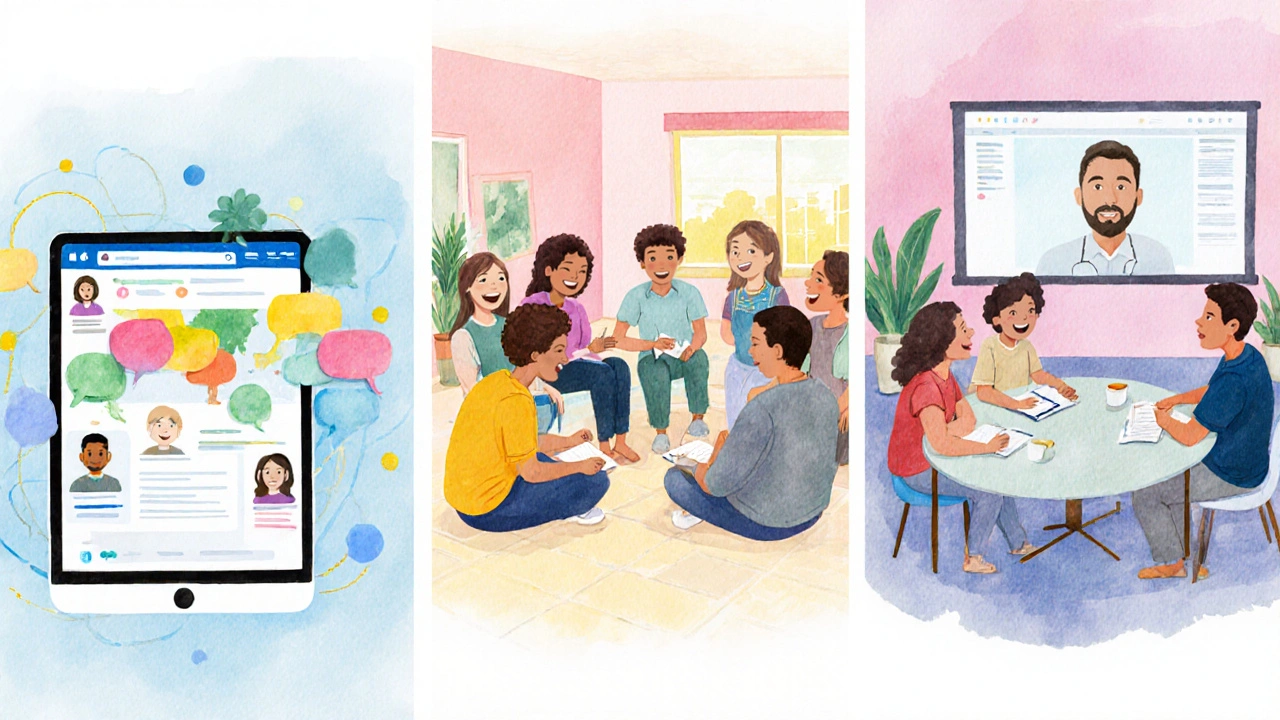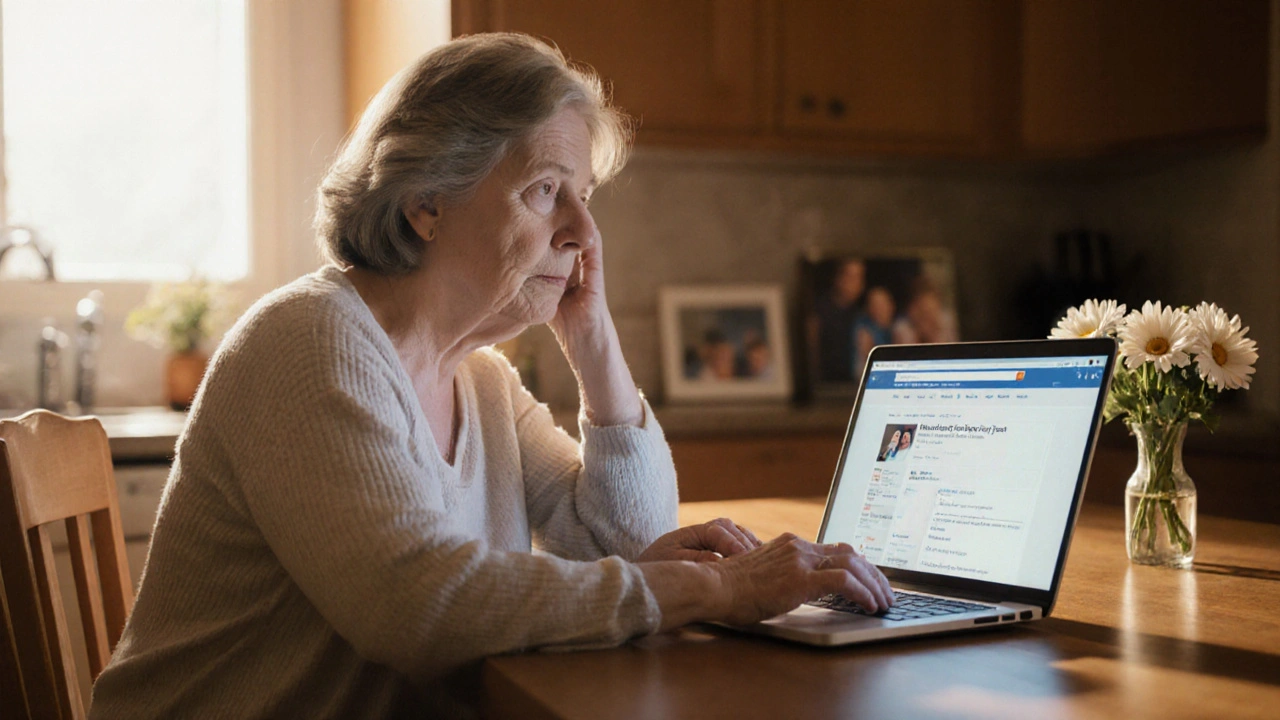Myasthenia Gravis Support Group Finder
Recommended Support Groups
Evaluate Group Quality
Living with Myasthenia Gravis is a daily balancing act-muscle weakness, fatigue, and the uncertainty of flare‑ups can feel isolating. That’s why Myasthenia Gravis support groups matter: they give you a place to share tips, vent frustrations, and celebrate small victories with people who truly get it.
Why a Support Tribe Matters
Myasthenia Gravis is an autoimmune disease that targets the neuromuscular junction. When the immune system attacks the receptors that let nerves tell muscles to move, patients experience muscle weakness that can range from mild to life‑threatening. The medical side is complex, but the emotional side is equally demanding. Studies from the National Institutes of Health show that patients with strong peer connections report 30% lower anxiety scores and better adherence to treatment regimens.
Beyond emotional relief, support groups provide pragmatic benefits: up‑to‑date information on medication side‑effects, guidance on navigating insurance, and real‑world strategies for managing daily tasks. They also amplify the voice of patient advocacy, pushing researchers and policymakers to fund MG‑specific trials.
Types of Support Groups and How They Differ
Not every group fits every need. Below is a quick snapshot of the three most common formats you’ll encounter.
| Format | Meeting Frequency | Accessibility | Typical Cost | Common Activities |
|---|---|---|---|---|
| Online Forum | 24/7 (asynchronous) | Global, any device | Free to low‑cost (subscription) | Threaded discussions, webinars, resource libraries |
| In‑Person Meet‑up | Monthly or quarterly | Location‑specific, may need travel | Usually free; venue fees possible | Speaker panels, social outings, support circles |
| Hybrid Group | Bi‑weekly (mix of live and recorded) | Both local and remote participants | Moderate (hosting platform + venue) | Live Q&A, recorded workshops, local socials |
Choosing the right format depends on your schedule, comfort with technology, and whether you prefer face‑to‑face interaction.
Finding Online Communities That Really Help
Online spaces are the fastest way to connect, especially if you live far from a major hospital center. Here’s a step‑by‑step guide to locate trustworthy forums.
- Start with reputable health portals. Websites like the Myasthenia Gravis Foundation of America (MGFA) host moderated discussion boards where clinicians occasionally chime in.
- Search social media using specific hashtags:
#MyastheniaGravis,#MGCommunity,#MGSupport. Look for groups with clear rules and active moderation. - Check patient‑focused platforms such as PatientsLikeMe or HealthUnlocked. These sites require user verification, which reduces spam and misinformation.
- Read community guidelines. Good groups outline expectations about privacy, respectful language, and source‑checking for medical advice.
- Participate briefly before committing. Post a question about medication side‑effects and see how quickly knowledgeable members respond.
When you find a promising forum, take note of its caregiver support threads. Even if you’re the patient, caregivers often share practical hacks-like how to adjust daily routines during a flare-that can be invaluable.

Locating In‑Person Meet‑ups Near You
Face‑to‑face groups foster deeper bonds, but they require a bit of legwork. Follow these steps to discover local gatherings.
- Visit your nearest neurology clinic’s bulletin board. Many hospitals allocate space for community‑led MG meet‑ups.
- Contact national organizations (MGFA, International Myasthenia Gravis Association). They maintain directories of regional chapters and can email you upcoming event calendars.
- Use event platforms like Eventbrite or Meetup.com. Search for “Myasthenia Gravis” and filter by distance.
- Ask your support coordinator or social worker if they know of peer‑support programs affiliated with local hospitals.
- Consider forming a small group with nearby patients if none exist-most organizations welcome new chapters and will help you with starter kits.
When you attend your first meeting, bring a brief personal introduction: your diagnosis timeline, key challenges, and what you hope to gain. This helps break the ice and signals you’re ready to contribute.
How to Evaluate a Group’s Quality
Not every community is created equal. Use this quick checklist to gauge whether a group will be a good fit.
- Moderation. Is there a designated moderator-often a healthcare professional or experienced patient-who enforces rules?
- Member Diversity. Does the group include a mix of newly diagnosed patients, long‑term survivors, and caregivers?
- Information Accuracy. Are medical claims backed by references or linked to reputable sources (e.g., PubMed, MGFA guidelines)?
- Safety & Privacy. Does the platform use encryption and allow members to remain pseudonymous if desired?
- Activity Level. Are there regular posts, scheduled events, or weekly check‑ins?
If a group fails more than one of these criteria, keep looking. The right tribe should feel safe, informative, and engaging.
Safety, Privacy, and Managing Misinformation
Because MG treatment involves prescription drugs like acetylcholinesterase inhibitors and immunosuppressants, sharing unverified advice can be risky. Here’s how to stay protected.
- Never replace a doctor’s prescription based on a forum suggestion. Use peer advice only as a conversation starter with your clinician.
- Prefer platforms that support two‑factor authentication and have clear privacy policies.
- Report posts that promote unproven “cures” or ask about buying medication off‑label.
- Bookmark reputable resources-MGFA treatment guidelines, recent clinical trial summaries-and share them with the group to raise the overall knowledge bar.

Real‑World Stories: How Support Groups Made a Difference
Emily, a 34‑year‑old teacher from Auckland, joined an online MG forum after a severe ocular‑muscle flare made her vision blurry. Within a week, she found a thread about low‑dose prednisone tapering. The advice she gathered helped her doctor adjust her dosage safely, and her vision cleared faster than expected.
John, a retired engineer in Ohio, attended a local meet‑up organized by the state MG chapter. He met a fellow patient who suggested a simple breathing exercise that reduced his nighttime weakness. After three months, John reported a 20% improvement in daily energy levels.
Both stories illustrate a core truth: support groups act as a multiplier for professional care, turning isolation into collaboration.
Next Steps: Your Personal Action Plan
Grab a notebook or digital note‑taking app and complete these three actions this week:
- Identify one online forum (e.g., MGFA discussion board) and create a profile.
- Search for a local meet‑up using the steps above; add the next event to your calendar.
- Run the quality checklist on any group you join and note any red flags.
By the end of the week you’ll have a concrete connection and a clear sense of whether it’s the right fit. Remember, finding your tribe is an ongoing journey-feel free to hop between groups until you land where you feel most supported.
Frequently Asked Questions
Are online MG support groups safe for sharing personal health details?
Most reputable forums use encrypted connections and allow pseudonyms. Still, treat any medical advice as a discussion point, not a prescription. Always verify with your doctor before changing medication.
How often do in‑person MG meet‑ups typically occur?
Frequency varies by region. Larger cities often host monthly gatherings, while rural areas may meet quarterly. Check local chapter calendars for exact dates.
Can caregivers join the same support groups as patients?
Absolutely. Many groups have dedicated caregiver threads where family members discuss burnout, medication management, and emotional coping strategies.
What should I do if I encounter misinformation in a forum?
Report the post to the moderator, and politely share a reputable source that corrects the claim. If the misinformation persists, consider leaving the group.
Are there any costs associated with joining MG support groups?
Most online forums are free. Some hybrid or in‑person groups may charge a modest venue fee or request donations to cover speakers. Costs are always disclosed up front.


Write a comment